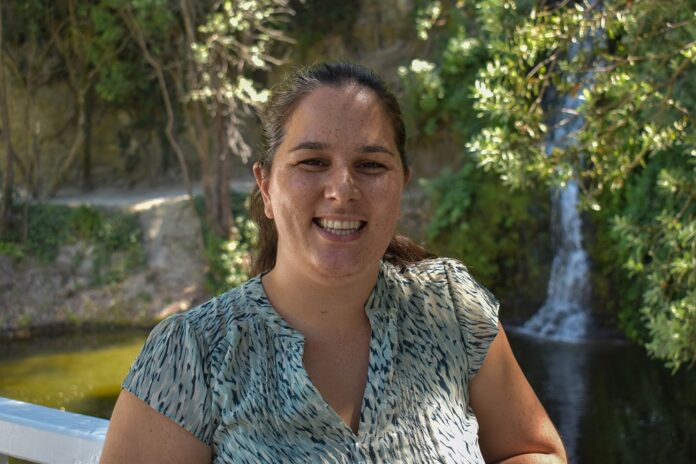Source: Eastern Institute of Technology – Tairāwhiti
11 mins ago
Jennifer Gale has discovered a whole new career pathway.
For Jennifer Gale (Ngāi Tahu), last year’s lockdown has been a blessing in disguise. The 30-year-old EIT student took the times of upheaval as a chance to reinvent her career –and hop on a dream project.
Jennifer grew up on her parents’ farm in Eskdale. Once finished high school, she moved to Dunedin to study for a Bachelor in Management, followed by a postgraduate diploma in tourism that she finished in 2013. While her partner was completing his degree, Jennifer worked as a chef.
The couple then moved to Wellington where Jennifer started a career at Immigration New Zealand and quickly climbed the ladder to become a Business Analyst. After almost five years of living in the capital, the couple landed jobs in Hawke’s Bay and moved back to Jennifer’s old stomping ground in Eskdale. The pandemic however, rocked Jennifer’s working life. Her stressful job as labour inspector affected her health, and Jennifer felt that it was time for a change.
EIT’s Certificate in Horticulture (level 3) had just been made fees-free a part of the government’s COVID-19 recovery initiative. Learning the fundamentals of horticulture, plant science and naming, pest and disease, soils and gardening skills, was exactly what Jennifer was looking for. “My granddad was a keen gardener. He grew his own tobacco, beans, and tomatoes. I used to spend a lot of time gardening with him and had never really lost touch.”
Jennifer says that the hands-on learning at EIT was very different from what she had done at uni. Most of all, the programme was well connected with the needs of industry and followed best practice guidelines. “We also built such a great relationship with the tutors. They are extremely knowledgeable and supportive. Our tutor Claire took us out to her orchard to teach us how to graft apple trees, and even gave us some plants to grow at home.”
Encouraged by her new skills, Jennifer started to propagate and grow plants. “It’s awesome that everything just thrives in Hawke’s Bay, but I also have to keep on top of this bounty.” She launched a pop-up plant shop, sells duck eggs, and started to preserve fruit gathered from her fruit trees.
Lockdown was also an opportunity to realise their long-term project to do up a 1960s Bedford bus and turn it into a quirky, tiny house. “Over the last years, we were moving from one place to the next, so we were forced to live with as little as possible anyway,“ she says. “I don’t own any more books, I thinned out my closet and reduced the kitchen equipment, but we are still in the process of downsizing.”
In 2020, Jennifer won the Rose Society Award for academic excellence, commitment, and leadership. “I had no idea that my tutors had nominated me. It came as a total surprise.”
Jennifer is now continuing her studies with EIT’s Diploma in Environmental Management and the Certificate in Apiculture. A big part of the farm is covered by mānuka, and Jennifer can’t wait to set up some hives. Jennifer also wants to restore the native vegetation and has collected many seeds and seedlings to get started. “Over the years, I’ve become quite an environmentalist, and I really picture myself working in this field, maybe for Regional Council or DoC,” she says.
Jennifer is now preparing to go completely off the grid. “I’m over city life and consumerism. I love to go to the beach, go for nature walks, and live the easy life, as low cost and self-sufficient as possible.”



